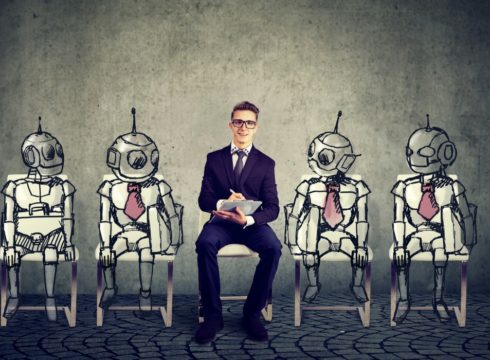SUMMARY
Over half of the workers in India are estimated to need reskilling by 2022
Scarcity of skilled labour found to be one of the biggest hindrances in the business growth of deeptech startups
Technology companies are running training programs to meet the skilled labour demand
Inc42 Daily Brief
Stay Ahead With Daily News & Analysis on India’s Tech & Startup Economy
With artificial intelligence (AI) use cases expanding in different segments, from customer service support, online advertising to smart home applications, self-driving cars and drones, the employment gap created by the automation wave is also widening.
According to a media report, Sridhar Mitta of Technology Talent Equilibrium said that for every 10 new jobs created by artificial intelligence, at least a 100 jobs are being made obsolete.
“The people who are losing jobs have different skills, and they’re going away. People are getting new jobs on different skill sets,” he added.
Further, with the emergence of new job roles the need for highly skilled labour can also be felt. According to the World Economic Forum, over half of the workers in India will need reskilling by 2022, to meet the future talent demands.
A DataLabs by Inc42 study has noted scarcity of high skilled labour in India as one of the biggest hindrances in the business growth of deeptech startups operating in India. Between 2014 to 2018 the funding in deeptech startups made only a mere 1.45% of the total venture capital poured into the Indian startup ecosystem, it added.
Technology giant Intel has reported having trained more than 1.5 Lakh developers, students and professors since 2017, to develop AI-ready talent in the country.
Govt’s Focus On Adoption Of Artificial Intelligence
In the Union Budget 2019, finance minister Nirmala Sitharaman proposed to bring a new education policy, which would focus on skill development among technology-intensive sectors such as —AI, Robotics and Big Data Education.
The government think tank NITI Aayog’s CEO Amitabh Kant had earlier said that the application of AI to different sectors could help increase India’s year-on-year (YoY) growth rate by 1.3%.
In June 2018, NITI Aayog had also shared plans to adopt AI in healthcare, agriculture, education, infrastructure, and transportation, in its discussion paper — ‘National Strategy for Artificial Intelligence’.
Later in May, NITI Aayog reportedly circulated a cabinet note to infuse INR 7.5K Cr. for the AI development and research in India.
The government think tank, NITI Aayog has proposed setting up of a cloud computing platform to support the advancement of AI-based developments, called AIRAWAT (Artificial Intelligence Research, Analytics and knowledge Assimilation platform).
Further, it had also proposed to invest in 20 international centres for transformational AI (ICTAI), five centres of research excellence (CORE). CORE were proposed to focus on pushing technology frontiers through the creation of new knowledge. While the International Centres of Transformational AI (ICTAI) were given the mandate to develop and deploy application-based research.
Note: We at Inc42 take our ethics very seriously. More information about it can be found here.


